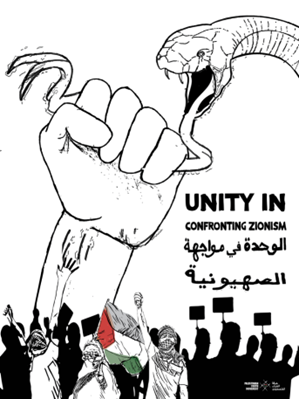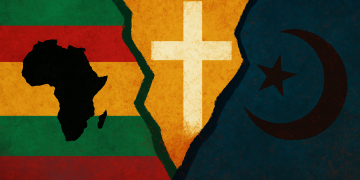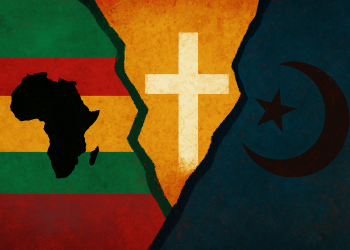Estimates show that nearly 50% of Palestinians live outside of Palestine. Among them, 6.4 million live in Arab countries (44.7% of the total), and about 800,000 (5.6%) live all around the world. Meanwhile, 5.4 million (37.8%) live in the West Bank and Gaza Strip, and 1.7 million (11.9%) live within the Green Line and hold Israeli citizenship.
The Hindered Connections Between the Palestinian Diaspora and the Homeland
Most Palestinians outside of Palestine are refugees exiled in the 1948 Nakba. Later waves of forced migration have taken place from both Palestine and host countries, underlining the vulnerability of Palestinian settlements outside of Palestine. Warfare and attacks on refugee camps, discriminatory policies in host countries, the rise and decline of the Palestine Liberation Organization (PLO), and other socioeconomic factors have shaped the geographic distribution of the Palestinian diaspora worldwide.
As a result, Palestinians have been exposed to varied cultural, social, and political conditions and have been granted different civil rights and legal status. This has hindered their ability to move and connect with each other and with Palestine. The context also includes restricted and often entirely prohibited access to their homeland because of Israeli policies. The creation of the Palestinian National Authority (PNA) in the wake of the Oslo Accords and the revival of a formal Palestinian nationality have not changed this reality. The colonization and dismemberment of ancestral Palestine and the growing “bantustanization” of the areas officially under PNA control further affect Palestinians’ relationships with their homeland. It is still Israel that controls the borders and restrains the right of permanent residency in the Occupied Palestinian Territories (OPTs). Although they are regularly subject to harassment and arbitrary “entry denial” because of their Palestinian origin, technically, Palestinian refugees who obtain foreign passports can enter as foreigners, requiring a three-month Israeli tourist visa.
Organizing the Struggle of Palestinians in Exile and Moving the Struggle Inwards
As a result of their plight, Palestinians have consistently been prominent activists worldwide. During the 1950s and early 1960s, Palestinian refugees quickly became involved with Arab political parties while also engaging in cross-border guerrilla actions against Israeli targets. This period saw a growing assertion of national self-confidence. This converged with the emergence of Palestinian-led political organizations that emphasized a specific Palestinian identity. The 1967 Arab defeat further impelled Palestinian armed organizations established in Arab countries to grant effective control over the struggle to the PLO. The PLO resembled a government in exile, with a transnational elected “parliament” (the Palestine National Council) and an “executive cabinet” (the executive committee). The Palestinian national movement countered the effects of the global dispersal of the diaspora by providing a common political framework for Palestinian activism, with the intent to voice and eventually achieve Palestinian national ambitions.
The PLO’s banishment by Israel into the OPTs and its later expulsion from Jordan in 1971 and from Lebanon in 1982 resulted in the growing paralysis of Palestinians in exile. Achieving statehood and not the liberation of all Palestine became the primary national goal – to secure an autonomous territorial base where Palestinians could be free of their vulnerability to outside pressures and threats. Meanwhile, the Land Day uprising among Palestinians within Israel in 1976 and the Intifada that erupted in the OPTs in 1987 embodied the inward relocation of the focus of the Palestinian struggle.
The Political Vacuum and The Renewed Struggle among the Diaspora
The Oslo Accords in 1993 and the establishment of the PNA as a self-governing body in Palestinian-controlled areas marginalized Palestinians abroad, especially those living in refugee camps. Indeed, one key feature of the Oslo process was the lasting degeneration of PLO institutions and the concentration of political decision-making within the PNA apparatus. With the establishment of the PNA in the early 1990s, the PLO’s critical role in organizing and voicing the diaspora diminished dramatically. Meanwhile, the PNA does not have the ability or legitimacy to govern the diaspora effectively.
This political vacuum in diaspora representation brought about the growth of initiatives undertaken outside of Palestine. This renewed activism was characterized by the rise of Palestinian political involvement in Western countries and Palestinian marginalization in Arab countries. Moreover, it is representative of the heterogeneous experiences and trajectories of the second and even third generation of the Palestinian diaspora. In this regard, it is noteworthy that mass media and the internet also offered new ways of connecting between scattered Palestinian communities and redefining the importance of borders and geography. Palestinians in the diaspora, especially youth, still provide an important contingent of activists underpinning solidarity movements and campaigns worldwide. They are highly involved in organizing demonstrations and events in reaction to Israeli crimes in the OPTs, but also in voicing political claims, particularly on the right of return. They also regularly write opinion pieces, give interviews, and use social networks to make their voices heard. This goes hand in hand with annual commemorations (e.g., Nakba, Land Day), cultural education, and social work that are crucial in community-building and reviving the Palestinian legacy.
This renewed activism characterized by an increase in political participation of Palestinians in Western countries and the marginalization of Palestinians in Arab countries.

Source: Palestinian Youth Movement
Organizing Their Involvement and Voicing Palestine
There have been numerous meetings and conferences aiming at bringing Palestinians together on a transnational scale to enhance their participation in national decision-making alongside their counterparts in the OPTs. In the context of Palestinian internal division, the diaspora has also become the locus of competition between different political forces seeking legitimacy and support for their movements and policies. Examples include the annual gatherings of Palestinians in Europe or the United States, attempts to revive the Palestine National Council, or the formation of the transnational Palestinian Youth Movement (PYM). At the height of its activity in 2010-2014, the PYM created a dozen branches in Palestine, the Arab world, and Western countries and had several hundred members around the world. Even though most of these branches have now disappeared, the movement is experiencing a new revival, mainly in North America, from where it is resuming its international expansion. This experience is symptomatic of a change in the relationship of Palestinians, from the outside and inside, to Palestine in a “post-Oslo” context. What is most striking is the break made by the PYM with the Palestinian national narrative promoted by the PLO/ANP and the reconnection with the Palestinian liberation project.
Palestinian intellectual, cultural, and artistic production is also important in any discussion about the diaspora. Palestinian writers, poets, musicians, and visual artists have contributed significantly to spreading and enriching Palestinian culture, and some Palestinian academics are among the most highly regarded in their respective fields. Not only have they shaped the field of Palestine Studies, but they have also become spokespersons for the Palestinian struggle and have actively taken part in defining and expanding its scope. The same occurs in the cultural and artistic sphere, with a whole new generation of artists navigating between their homeland and the rest of the world.
Today, Palestinians in the diaspora are still at the forefront of the mobilizations taking place worldwide to denounce Israel’s genocidal war against the Gaza Strip and the increase in Israeli crimes throughout occupied Palestine. While they are the most direct relays of the voices of their people inside Palestine, they still lack the spaces in which to think collectively about the goals and strategies of their struggle.
Photo: ‘London Rally for Palestine’ held in Trafalgar Square in the heart of London, by Justin Tallis/AFP.












































